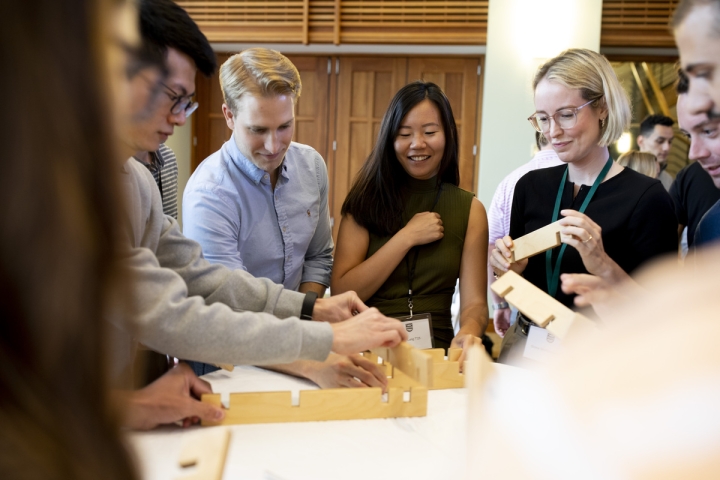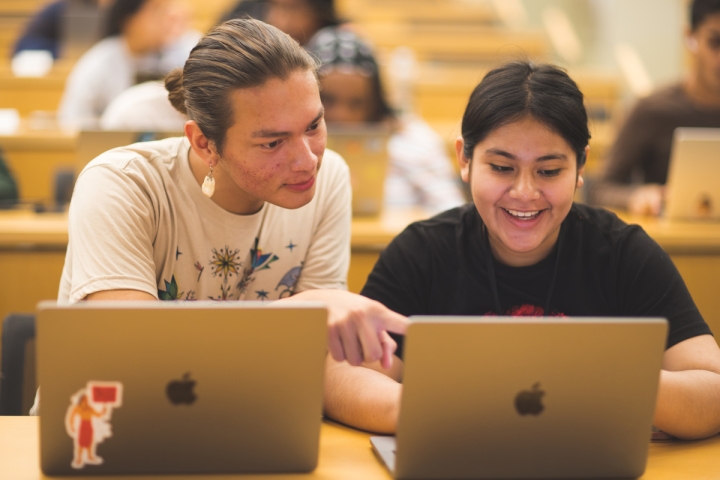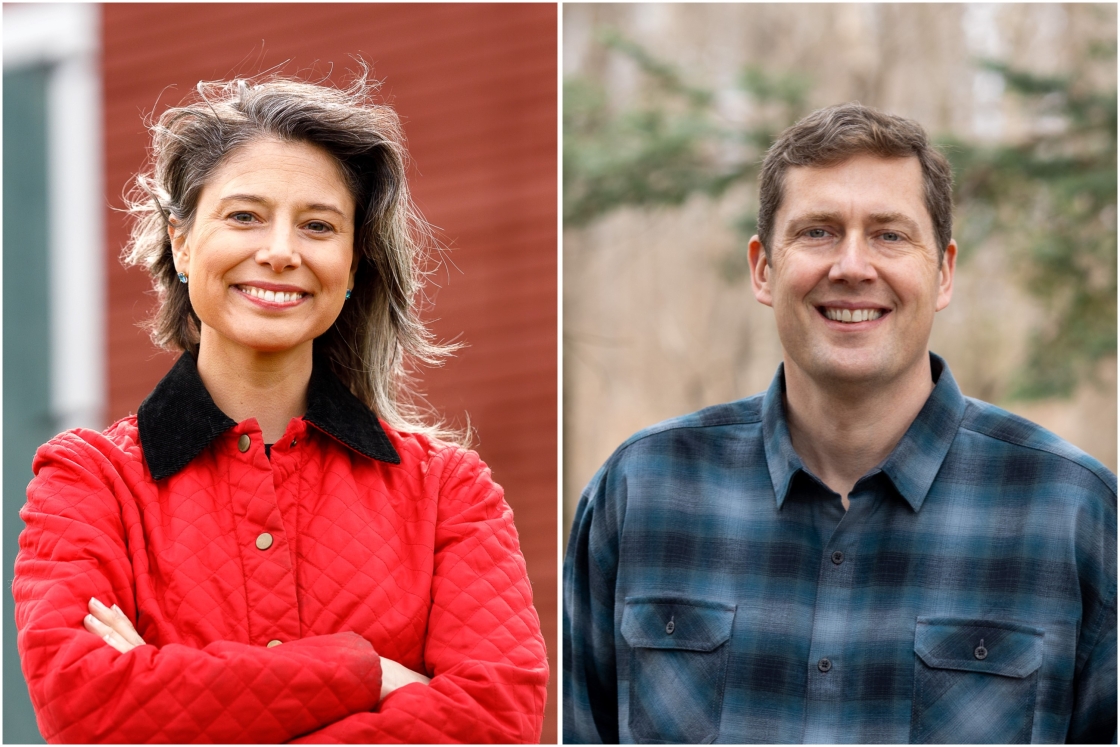As summer term classes for undergraduates end this week, campus is starting to welcome new students as staff and faculty prepare for this year’s New Student Orientation.
The orientation for incoming undergraduates, which runs from Aug. 30 to Sept. 11, will kick off with a special welcome ceremony at Memorial Field with President Sian Leah Beilock. Other activities will include a sequence of co-curricular introduction and community-building days, academic open houses, student involvement programs, course advising and election, and a scavenger hunt created with the town of Hanover highlighting opportunities to get involved with the town.
Participants in the International Student Pre-Orientation Program and Native and Indigenous Pre-Orientation arrive on Aug. 28, and students taking part in the First-Year Summer Enrichment Program, which kicked off on Aug. 5, are already here. Pre-season athletes have also been taking part in practices and scrimmages.
Geisel School of Medicine held orientation programs for new medical students and public health students last month. Tuck School of Business welcomed incoming students with Pre-Tuck Launch in July and Tuck Launch earlier this month.

And orientation for new students at Guarini School of Graduate and Advanced Studies and Thayer School of Engineering will start after Labor Day.
Meeting the needs of incoming students
Elizabeth Cervantes Roman ’27 is among more than 70 undergraduates taking part in FYSEP. Cervantes Roman says she’s enjoying the classes, with subjects ranging from engineering to cultural identity and belonging, and is picking up useful skills, such as networking, effective note-taking, and stress management.
Spending time with other first-generation students has been imperative, because she is learning so much from them, says Cervantes Roman, a member of School House who is from Flagstaff, Ariz. And, she adds, “We’re creating lots of fun memories together.”
Staff in the Office of Student Life, campus partners, and student leaders adapt the annual New Student Orientation program each year to best suit students as they transition into academic and co-curricular life at Dartmouth.
“We give a lot of thought to the needs of incoming students,” says Eric Ramsey, associate dean for student life, who recalls his first days at college. “When our first-year students arrive, it can be a scary and intense moment. As they begin this life-changing journey, they are wondering, who am I? Who are going to be my friends? How am I going to find my place here?”
As always, the program honors the diverse paths students take to and through Dartmouth, and includes such beloved programs as First-Year Trips and the Twilight ceremony, which are intended to help first-year and transfer students begin creating connections at Dartmouth.
Fostering a sense of place
Myriad opportunities to talk with upper-level students about life at Dartmouth are built into the program, says Kathleen Cunneen director of new student programs in the Office of Student Life.
During A Dartmouth Welcome! on Aug. 30, President Beilock and other members of the senior administration will address incoming undergraduates, their families, and supporters at Memorial Field.
After a busy day during which many students will move into their residence halls, “this is the moment to say goodbye,” says Ramsey. The short program will “acknowledge the big moment and that the Dartmouth journey for all of them starts then, and we are all on this journey together.”
Immediately following, new undergraduates will join their classmates at the first meeting of the Class of 2027, which will be student-run and start off with a spoken-word performance piece based on incoming students’ admissions essays, read aloud by upper-level students.
Your Class, Your Words is less about academic achievements or other accomplishments for which students were recognized in high school than it is about “human moments that help foster a sense of one’s place here,” says Ramsey.
It’s a poignant performance, Cunneen says.
Years later, students talk about hearing words that weren’t necessarily their own, but that sounded “exactly like something they could have said,” she says. “All of a sudden, they discover that the thing they thought isolated them actually connects them to someone else who thinks or feels that same way.”
The event is among several to be held in Leverone Fieldhouse, as the renovation and expansion project proceeds at the Hopkins Center for the Arts.
‘Creating and finding community’
Days later, as orientation draws to a close, students, through a partnership with Community Life and Inclusivity, will hear from the Rev. Jamie Washington, president and founder of the Baltimore-based Washington Consulting Group and president and co-founder of the Social Justice Training Institute.
His presentation, WE Are Dartmouth, will engender themes that are reflected throughout orientation—belonging and creating and finding community, Cunneen says.
Matriculation, where students formally meet Beilock in her Parkhurst Hall office, will also take place, on Sept. 10.
Woven among the opportunities to explore academic and wellness resources, get to know their classmates, and settle into their house communities, will be invitations to take breaks in quiet spaces set aside for just relaxing.
“We’ve decompressed the schedule so that there’s more space to get to know campus and do something with another person or with a group of people, without always being scheduled to be someplace,” Cunneen says.
The FYSEP students have already been enjoying that sort of space, with group activities, meditation sessions, and classes to build community and help them prepare for the college experience.
“FYSEP strives to prepare our students for success inside and outside the classroom, while ensuring these students know how lucky Dartmouth is to have them,” says Jay Davis ’90, director of the First-Generation Office, King Scholars program, and FYSEP.

